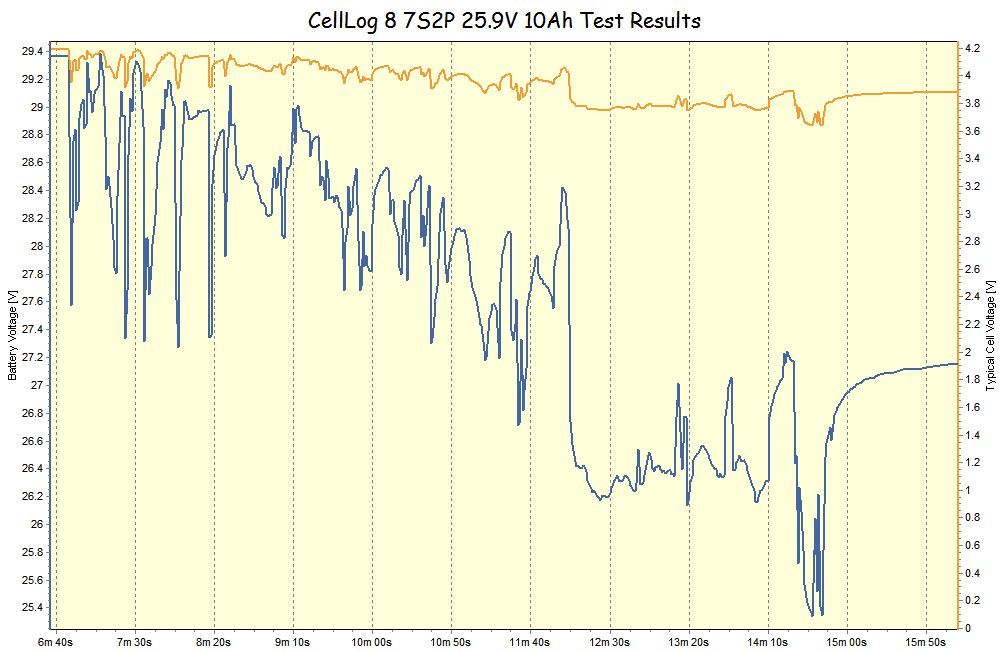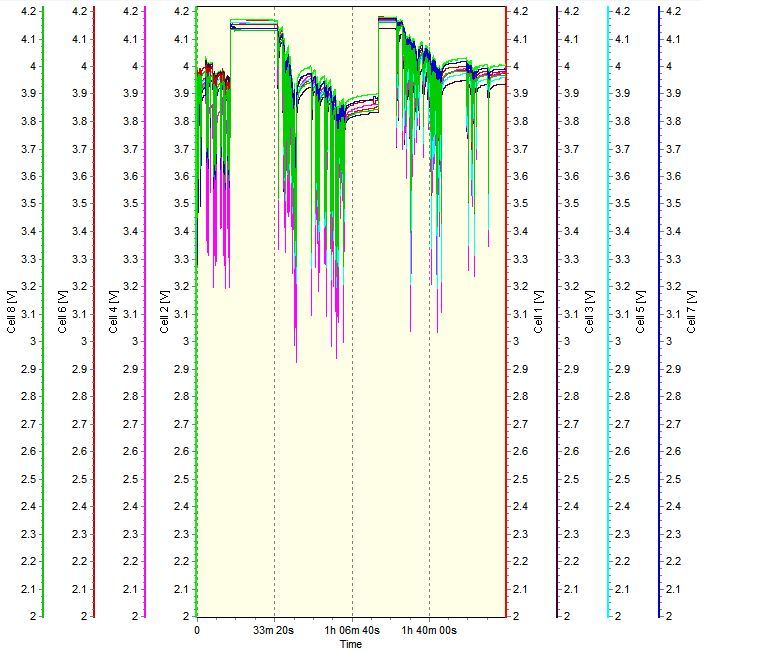Hi Alan
To be honest, I never even considered that someone would disconnect the battery from a motor they were using! Open circuit regen voltage could be just about anything.
Hi Dennis,
It doesn't necessarily have to be "someone" disconnecting the battery from a motor they were using, some users occasionally ride their bikes without having a battery attached, or they sometimes have it attached but leave it switched off until assistance is needed, and this caused a lot of problems with the earlier controllers.
With the battery attached and turned on, if you start a trip from the top of a steep hill with a fully charged battery, the regenerative output voltage from the controller during high speed braking could exceed the maximum charging voltage of the battery, and under these circumstances I would expect the battery's
BMS to disconnect the charging supply in order to prevent the regenerative braking from overcharging the battery.
However, if a home made battery pack does not have a
BMS to protect it from overcharging, the cells could possibly be overcharged, which can be very dangerous with LiPo packs!
I have my MP4 controller maximum voltage set to 59V instead of the default 63V to hopefully protect my 14S lipo pack, but I don't know whether this high voltage cutoff has ever been activated.

My wattmeter does not store the maximum voltage, but I do have a very useful alarm and data logging function on my
CellLog 8S battery monitor:

I use this to monitor one half of the pack at a time, and I have never had the overvoltage alarm activate on either half.

Here is a graph showing the voltage variation throughout a test ride:

The high peaks show the regen voltage and the low bits show the voltage sag in the battery when the motor is under maximum load, and the highest cell voltage does not exceed 4.2V
(which is the maximum permissible charging voltage for these LiPo cells).
Although I did manage to make the low voltage alarm sound a couple of times while on this ride with an old and weak 8 cell LiPo pack:

Some users occasionally ride their bikes without having a battery attached
(or they sometimes have it attached, but leave switched off until needed), and this caused a lot of problems with the earlier controllers.
Alan